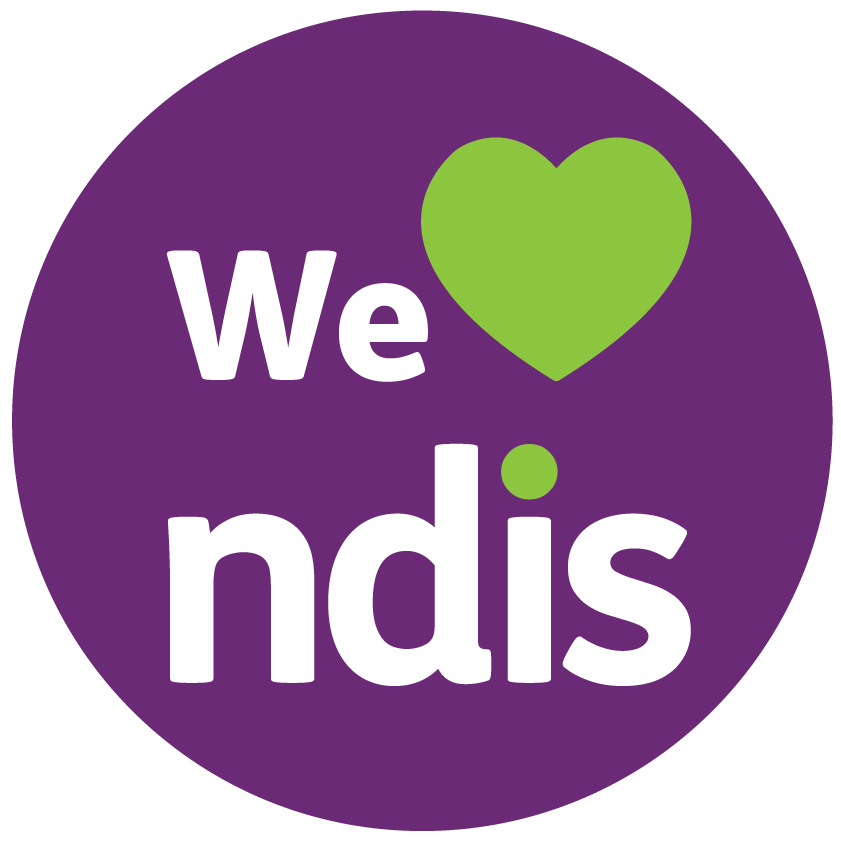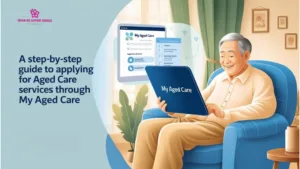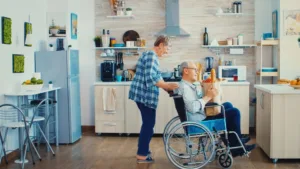
In recent years, there has been increasing recognition of the importance of community engagement for individuals with disabilities.
Community participation refers to the active and involvement of engagement individuals with disabilities in various aspects of community life. This can include social, recreational, educational, and employment opportunities.
The transformative impact of community engagement on individuals with disabilities cannot be overstated. It not only enhances their quality of life but also promotes inclusivity, empowerment, and independence.
In this article, we will explore the profound benefits of community engagement for individuals with disabilities. Quick Enquiry for more details.
Promoting Social Inclusion And Belonging
One of the key benefits of community engagement is its ability to promote social inclusion and a sense of belonging. By actively participating in community activities, individuals with disabilities can establish meaningful connections with others, build friendships, and develop a sense of community.
These social connections help to combat feelings of isolation and loneliness that individuals with disabilities often experience. Being part of a community fosters a sense of acceptance and validates their unique abilities and contributions.
It enables individuals with disabilities to develop a positive self-identity and establish a network of support.
Community engagement provides individuals with disabilities the opportunity to break free from the barriers that may isolate them and experience a true sense of social inclusion and belonging.
By actively participating in community activities, individuals with disabilities have the chance to connect with people who share similar interests and experiences, forming meaningful friendships and relationships.
These connections go beyond surface-level interactions and create a deep sense of community where individuals with disabilities feel valued, respected, and accepted for who they are.
Feeling a sense of belonging is crucial for individuals with disabilities as it combats the feelings of isolation and loneliness that they may often face. Through community engagement, they can overcome these challenges by being actively involved in various social, recreational, and cultural activities.
Attending community events, joining clubs or organizations, and participating in group projects allow individuals with disabilities to build a network of support, surrounded by people who understand and appreciate their unique abilities and contributions.
Moreover, being part of a community not only provides individuals with disabilities with social connections but also helps them develop a positive self-identity. When they are actively engaged and included in community activities, they are recognized for their talents, skills, and potential.
This recognition helps to boost their self-esteem and self-confidence, allowing them to embrace their abilities and view themselves as valued members of society.
The validation received from the community’s acceptance and support reinforces a positive self-image, encouraging individuals with disabilities to strive for personal growth and pursue their goals.
Community engagement also opens doors for individuals with disabilities to access resources and services that further enhance their social inclusion.
By participating in community programs, they can gain access to educational opportunities, vocational training, and employment support. These resources empower individuals with disabilities to develop their skills, pursue their passions, and contribute meaningfully to their communities.
Furthermore, community engagement allows them to advocate for their rights and promote inclusivity, ultimately creating a more accepting and accessible society for everyone.
Enhancing Physical And Mental Well-being
Community engagement also plays a vital role in enhancing the physical and mental well-being of individuals with disabilities. Regular Community Participation in physical activities, such as sports, dance, or exercise classes, promotes physical fitness, coordination, and overall health.
It can also help individuals with disabilities develop essential motor skills and improve their self-confidence. Moreover, engaging in recreational and leisure activities provides a much-needed break from the daily challenges and stressors associated with living with a disability.
This can have a positive impact on mental health, reducing symptoms of anxiety and depression and improving overall psychological well-being.
Engaging in physical activities through community engagement offers numerous benefits for individuals with disabilities. Community Participation in sports, dance, or exercise classes not only promotes physical fitness but also improves coordination and motor skills.
These activities contribute to overall well-being by enhancing cardiovascular health, increasing strength and flexibility, and improving body awareness.
Furthermore, regular physical activity can have a positive impact on mental health. Living with a disability can often lead to increased stress, anxiety, and depression.
However, participating in community-based physical activities provides a much-needed break from these daily challenges, offering a sense of joy, fulfillment, and relaxation.
Exercise releases endorphins, known as “feel-good” hormones, which can help alleviate symptoms of anxiety and depression, improve mood, and boost self-esteem.
In addition to physical activities, engagement in recreational and leisure activities can have a profound effect on mental well-being.
Community-based programs and events, such as art classes, music groups, or gardening clubs, provide individuals with disabilities with opportunities for creative expression, personal growth, and a sense of accomplishment.
These activities offer an outlet for self-expression and allow individuals to explore their interests and talents, fostering a positive mental state and overall satisfaction with life.
Community engagement also provides a support network and social connections that contribute to mental well-being. By participating in community activities, individuals with disabilities can connect with others who share similar interests and experiences.
These connections offer a sense of belonging, support, and understanding, reducing feelings of isolation, and promoting overall mental wellness.
The social interactions and friendships formed through community engagement provide a sense of purpose, increase self-confidence, and create a support system during both challenging and joyful times.
Furthermore, community engagement can play a role in reducing the stigma and misconceptions surrounding disabilities, leading to improved mental well-being.
By actively participating in community activities and showcasing their abilities, individuals with disabilities challenge stereotypes and break down barriers.
This can result in increased acceptance and understanding from others, contributing to a more inclusive and supportive community environment.
Community engagement has a transformative impact on the physical and mental well-being of individuals with disabilities.
Regular Community Participation in physical activities improves fitness levels, coordination, and self-confidence, while recreational and leisure activities provide a break from daily challenges and promote creative expression.
Additionally, community engagement offers social connections, a sense of belonging, and a support network that positively impacts mental health.
By actively participating in community activities, individuals with disabilities can experience improved physical health, reduced symptoms of anxiety and depression, and overall enhanced quality of life.
Developing Life Skills And Independence
Community engagement provides individuals with disabilities with valuable opportunities to develop essential life skills and foster independence.
Through Community Participation in educational programs, vocational training, and employment opportunities, individuals with disabilities can acquire the knowledge, skills, and experience necessary for independent living and meaningful employment.
Community engagement offers a platform for skill-building, such as communication, problem-solving, time management, and teamwork. These skills not only enhance their personal development but also increase their chances of successful integration into the workforce.
Engaging in community activities allows individuals with disabilities to develop a wide range of life skills that are essential for their overall development and independence.
Educational programs and vocational training offered within the community provide them with valuable knowledge and practical skills that can be applied to various aspects of their lives.
They can acquire literacy and numeracy skills, learn about financial management, gain computer proficiency, and receive specialized training related to their areas of interest or career goals.
Community engagement also offers a platform for individuals with disabilities to enhance their communication skills. By interacting with others, whether through social events, group activities, or volunteer work, they can practice effective communication, both verbal and non-verbal.
This includes expressing their thoughts and ideas, active listening, and developing empathy and understanding towards others. Effective communication skills are vital for establishing and maintaining relationships, advocating for oneself, and succeeding in various social and professional settings.
Participating in community activities provides individuals with disabilities with opportunities to develop problem-solving and critical-thinking skills. They face various challenges and situations that require them to analyze, strategize, and find solutions.
This helps them develop resilience, adaptability, and resourcefulness in navigating obstacles and overcoming barriers. Developing these problem-solving skills enables individuals with disabilities to become more self-reliant and confident in their ability to handle different situations in their daily lives.
Time management is another crucial life skill that can be honed through community engagement. By actively participating in community activities, individuals with disabilities learn to prioritize tasks, manage their schedules, and meet deadlines.
They develop a sense of responsibility, punctuality, and the ability to balance various commitments. This skill is vital not only for personal growth but also for successful integration into the workforce, where efficient time management is highly valued.
Engaging in community activities often involves teamwork and collaboration, providing individuals with disabilities with valuable opportunities to develop teamwork skills.
Working together with others towards a common goal fosters cooperation, effective communication, and the ability to contribute to a collective effort.
These skills are transferable to professional settings, where individuals with disabilities can thrive as valuable team members, bringing their unique perspectives and abilities to the table.
By actively participating in community activities and engaging in skill-building opportunities, individuals with disabilities gain the confidence, knowledge, and experience necessary for independent living and meaningful employment.
The skills they develop through community engagement empower them to navigate daily challenges, make informed decisions, and pursue their goals. They become more self-reliant, capable of advocating for themselves and prepared for a wide range of personal and professional opportunities.
Community engagement plays a pivotal role in the development of life skills and in fostering independence for individuals with disabilities.
Through Community Participation in educational programs, vocational training, and community activities, they acquire essential skills such as communication, problem-solving, time management, and teamwork.
These skills enhance their personal growth, increase their chances of successful integration into the workforce, and enable them to lead more independent and fulfilling lives. Community engagement is a powerful catalyst for empowering individuals with disabilities and unlocking their full potential.
Empowering Advocacy And Self-Representation
Engagement in the community empowers individuals with disabilities to become advocates for their rights and self-representatives. By actively participating in community organizations, support groups, and decision-making processes, they gain a voice and influence over issues that affect their lives.
This engagement fosters a sense of agency, self-determination, and empowerment.
Individuals with disabilities can share their experiences, challenges, and perspectives, contributing to the development of inclusive policies and practices. It enables them to challenge stereotypes, raise awareness, and drive social change.
Engaging in community activities empowers individuals with disabilities to advocate for their rights and become self-representatives. By actively participating in community organizations, they have a platform to raise their voices, share their experiences, and advocate for the changes they want to see in society.
They can join disability rights groups, participate in advocacy campaigns, and collaborate with other stakeholders to promote inclusivity and equality.
Through community engagement, individuals with disabilities gain a sense of agency and self-determination. They no longer feel like passive recipients of decisions made on their behalf, but active contributors and decision-makers.
This empowerment fosters a greater sense of control over their lives and allows them to shape their own futures.
By sharing their experiences, challenges, and perspectives, individuals with disabilities contribute to the development of inclusive policies and practices. Their firsthand knowledge and insights are invaluable in identifying barriers, addressing systemic issues, and promoting positive change.
Their involvement in decision-making processes ensures that their unique needs and perspectives are considered, leading to more inclusive and equitable outcomes.
Community engagement also enables individuals with disabilities to challenge stereotypes and raise awareness about disability-related issues. By actively participating in community activities, they become visible and demonstrate their abilities, breaking down misconceptions and changing public perceptions.
Their active involvement helps to create a more inclusive and accepting society that values diversity and appreciates the contributions of all its members.
Furthermore, by engaging in advocacy and self-representation, individuals with disabilities become agents of social change. Their actions and voices inspire others and encourage a collective effort to promote inclusivity and equality.
They become role models and sources of inspiration for others with disabilities, demonstrating that everyone has the power to make a difference.
Community engagement empowers individuals with disabilities to overcome societal barriers and effect positive change. By actively participating in community organizations, advocating for their rights, and sharing their experiences, they become catalysts for social transformation.
Their involvement drives the development of inclusive policies and practices and challenges the status quo. Through their actions, individuals with disabilities become powerful advocates and agents of change, contributing to a more inclusive, equitable, and accessible society for all.
Cultivating Empathy And Inclusive Communities
Community engagement involving individuals with disabilities has a ripple effect, transforming the broader community in numerous positive ways.
As community members interact and engage with individuals with disabilities, they develop empathy, compassion, and a greater understanding of their unique experiences and perspectives.
This increased awareness leads to a shift in attitudes, breaking down barriers and reducing the stigma associated with disabilities.
By actively involving individuals with disabilities in community activities, a culture of inclusivity and acceptance is fostered. Community members witness firsthand the talents, capabilities, and contributions of individuals with disabilities, challenging preconceived notions and debunking stereotypes.
This exposure promotes a more accurate and nuanced understanding of disability, leading to a more inclusive society where diversity is celebrated.
Community engagement also encourages the development of accessible infrastructure, services, and programs that benefit everyone. When individuals with disabilities are actively involved in community activities, accessibility considerations become a priority.
This can lead to physical modifications, such as ramps, accessible transportation, and inclusive facilities, that enhance the overall accessibility for all community members.
By creating inclusive spaces, the community becomes more accessible, welcoming, and accommodating for individuals with disabilities, as well as for older adults, parents with strollers, or anyone with temporary mobility challenges.
Furthermore, community engagement that includes individuals with disabilities promotes social cohesion and stronger social connections among community members. By interacting with individuals with disabilities, community members can build meaningful relationships, foster friendships, and experience the richness of diversity.
These connections and relationships contribute to a stronger sense of community, increased social capital, and a more supportive and connected society.
Engaging individuals with disabilities in community activities also tap into their unique skills, talents, and perspectives, which can lead to innovative solutions and creative contributions to community initiatives.
When diverse voices are included in decision-making processes and community projects, the outcomes are enriched by a broader range of ideas and experiences.
This diversity of thought and perspective fosters innovation, problem-solving, and the development of more comprehensive and effective solutions for the benefit of the entire community.
community engagement involving individuals with disabilities has a transformative impact on the broader community. It promotes empathy, understanding, and inclusivity by challenging prejudiced attitudes and reducing stigma.
It encourages the development of accessible infrastructure and services, benefiting all community members. Community engagement also strengthens social connections and fosters a sense of community.
By actively involving individuals with disabilities in community activities, a more inclusive and accessible society is created, where diversity is celebrated, and collective well-being is enhanced.
Conclusion – Impact Of Dream Big’s Community Participation
The transformative impact of community engagement on individuals with disabilities extends to various dimensions of their lives, underscoring its significance and value.
By promoting social inclusion and belonging, community engagement helps individuals with disabilities establish meaningful connections and develop a sense of community, combating feelings of isolation and fostering acceptance.
Furthermore, community engagement enhances the physical and mental well-being of individuals with disabilities by providing opportunities for physical activities that promote fitness, coordination, and overall health.
It also offers a respite from the challenges of living with a disability and contributes to improved mental health by reducing symptoms of anxiety and depression.
In addition to well-being, community engagement plays a vital role in the development of life skills and independence.
Through educational programs, vocational training, and employment opportunities, individuals with disabilities acquire essential skills necessary for independent living and meaningful employment.
They develop communication, problem-solving, time management, and teamwork skills that not only enhance personal growth but also increase their chances of success in various social and professional settings.
Moreover, community engagement empowers individuals with disabilities to become advocates for their rights and self-representatives. By actively participating in community organizations and decision-making processes, they gain a voice and influence over issues that affect their lives.
This involvement fosters a sense of agency, self-determination, and empowerment, enabling them to challenge stereotypes, raise awareness, and drive social change.
The impact of community engagement on individuals with disabilities is rooted in the creation of an environment that values diversity, encourages active Community Participation, and nurtures a sense of community.
By embracing and actively involving individuals with disabilities, communities become more inclusive, empathetic, and equitable. It is through these inclusive practices that society can fully recognize and harness the talents, abilities, and contributions of individuals with disabilities.
Recognising the immense benefits of community engagement, it is essential for society to continue creating opportunities for individuals with disabilities to thrive and fully contribute of their abilities.
By removing barriers, promoting accessibility, and fostering a culture of inclusivity, communities can unlock the untapped potential within individuals with disabilities and create a more equitable and just society for all.
In conclusion, community engagement promotes social inclusion, enhances well-being, develops life skills, empowers advocacy, and cultivates a sense of belonging.
By embracing diversity and actively involving individuals with disabilities, communities can become more inclusive and compassionate, benefiting both individuals with disabilities and the community.
It is imperative that society continues to prioritize and create opportunities for community engagement, recognizing and valuing the unique contributions of individuals with disabilities.
Our Community Participation Support Program:
Dream Big Support Services ‘Community Participation Support Program’ is a remarkable initiative that exemplifies a commitment to fostering inclusivity and empowering individuals with disability to actively engage in their communities.
Designed to be accessible to individuals in Australia, this program recognizes the profound importance of social connections, personal development, and community involvement for people with diverse abilities.
By acknowledging and supporting these fundamental aspects, the program aims to create an environment where individuals with disabilities can thrive and make meaningful contributions to their communities.







